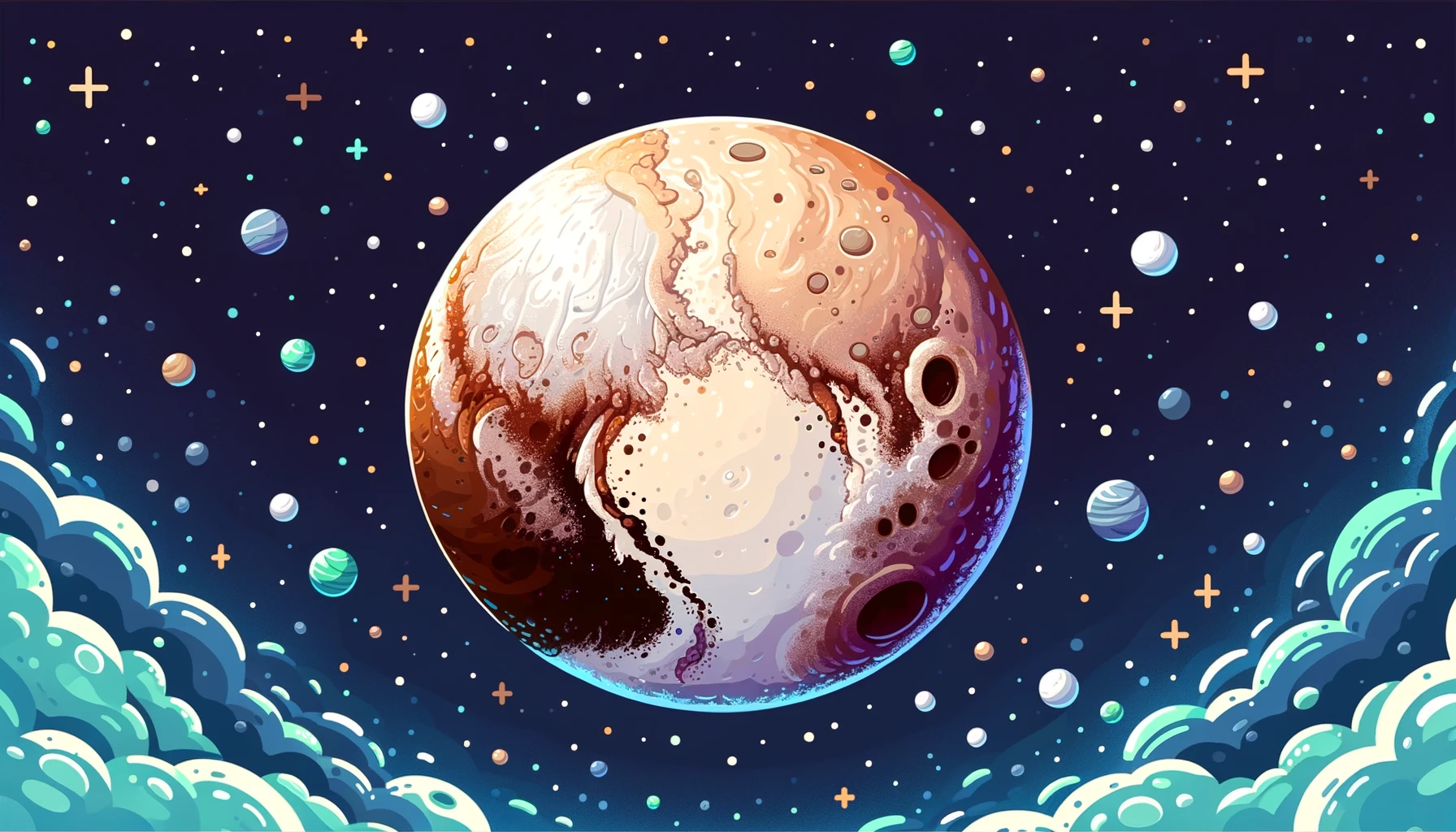From Planet to Dwarf Planet- Pluto and its reclassification
Pluto and its reclassification
Table of Contents
- Introduction to Pluto
- Discovery of Pluto
- The Ninth Planet: Pluto’s Initial Classification
- Reasons for Reclassification
- Pluto’s Characteristics
- Impact on Astronomy and Public Perception
- Future Exploration of Pluto
- Conclusion
- References
Pluto Reclassification: From Planet to Dwarf Planet
Introduction to Pluto Pluto, once considered the ninth planet of our solar system, has a unique and fascinating history. Its reclassification as a dwarf planet sparked widespread debate and curiosity. This article explores the journey of Pluto’s reclassification, examining the reasons behind the change and its impact on the field of astronomy.
Discovery of Pluto Pluto was discovered on February 18, 1930, by American astronomer Clyde Tombaugh at the Lowell Observatory in Flagstaff, Arizona. The discovery was the result of a dedicated search for a ninth planet, prompted by irregularities in the orbits of Uranus and Neptune. Pluto was named after the Roman god of the underworld, reflecting its dark and distant nature.
The Ninth Planet: Pluto’s Initial Classification For 76 years, Pluto was celebrated as the ninth planet in our solar system. Its discovery completed the known planetary lineup and captivated the public’s imagination. Pluto’s classification as a planet was based on its orbit around the Sun and its status as a significant celestial body in the Kuiper Belt, a region of the solar system beyond Neptune filled with icy bodies and dwarf planets.
Reasons for Reclassification The reclassification of Pluto was driven by advancements in our understanding of the solar system and the discovery of similar-sized objects in the Kuiper Belt. Key factors included:
- Discovery of Eris: In 2005, astronomers discovered Eris, a trans-Neptunian object larger than Pluto. This discovery prompted the need to refine the definition of a planet.
- IAU Definition: In 2006, the International Astronomical Union (IAU) introduced a new definition of a planet, which required that a celestial body must orbit the Sun, be spherical in shape, and have cleared its orbit of other debris. Pluto failed to meet the third criterion.
- Dwarf Planet Classification: As a result, Pluto was reclassified as a dwarf planet, along with Eris and other similar objects.
Pluto’s Characteristics Despite its reclassification, Pluto remains a fascinating object of study. Key characteristics include:
- Size and Composition: Pluto has a diameter of about 2,377 kilometers (1,477 miles) and is composed primarily of ice and rock.
- Atmosphere: Pluto has a thin atmosphere composed mainly of nitrogen, with traces of methane and carbon monoxide.
- Moons: Pluto has five known moons, with Charon being the largest and nearly half the size of Pluto itself.
Impact on Astronomy and Public Perception Pluto’s reclassification had significant impacts on both the scientific community and public perception:
- Scientific Debate: The reclassification sparked debates among astronomers regarding the criteria for defining a planet and the complexities of the solar system.
- Educational Impact: Textbooks and educational materials had to be updated to reflect Pluto’s new status as a dwarf planet.
- Public Sentiment: Many people felt a sentimental attachment to Pluto as the ninth planet, leading to widespread interest and discussions about its reclassification.
Future Exploration of Pluto The reclassification has not diminished scientific interest in Pluto. NASA’s New Horizons mission, which flew by Pluto in 2015, provided unprecedented data and images of the dwarf planet, revealing its complex geology and diverse surface features. Future missions may further explore Pluto and other Kuiper Belt objects to enhance our understanding of these distant worlds.
Conclusion Pluto’s reclassification from a planet to a dwarf planet marks a significant milestone in the history of astronomy. This change, driven by new discoveries and refined definitions, highlights the dynamic nature of scientific knowledge. Pluto continues to captivate scientists and the public alike, serving as a reminder of the ever-evolving nature of our understanding of the universe.

<ⓒ WizardMedics (wizardmedics.com)>






